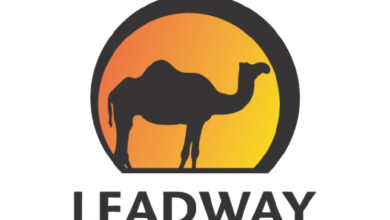How Agricultural Insurance Can Help Guarantee Post-Pandemic Food Security

By Oxford Business Group
In a world in which radical climatic events are increasingly affecting farm production, agricultural insurance is coming to be seen as a key solution for producers to bolster economic and food security.
The global agriculture industry suffered significantly as a result of Covid-19. Lockdown measures implemented to stop the spread of the virus led to severe labour shortages, with crops often left to rot in fields, while disruptions to local and international supply chains meant that many goods simply never made it to market.
While these factors placed a significant strain on global food supplies, a series of natural disasters compounded the issue.
For example, parts of Africa, the Middle East and Asia experienced the worst locust infestation in decades, decimating yields and resulting in $8.5bn in crop and livestock losses in East Africa alone. This subsequently placed pressure not only on small-scale farming businesses but also local food supplies.
The origins of the infestation dated back to mid-2018, when Cyclone Mekunu passed over vast desert areas on the southern end of the Gulf peninsula and parts of East Africa.
Coming off the back of a severe drought – which itself devastated agricultural production in a number of African countries – the heavy rains associated with the cyclone created the perfect breeding ground for locusts to grow and spread, further highlighting the secondary effects of extreme weather events.
Implementing agriculture insurance
Given that extreme weather patterns are set to grow in regularity, agricultural insurance is increasingly seen as an effective tool to protect farmers from crop-related financial losses, offset agriculture-linked budget volatility and stimulate growth in the sector – particularly in emerging markets where agriculture makes up a significant proportion of GDP.
For example, in sub-Saharan Africa agriculture accounts for 14% of GDP and export crops are an important source of foreign exchange, while the sector is the largest employer across the continent as a whole, meaning that any serious disruption to crops could have detrimental impacts across large sections of society.
Despite its importance, the considerable risk associated with catastrophic agricultural losses has meant that many insurers have hesitated to offer agricultural insurance products in emerging markets.
In light of this, in some cases state authorities have stepped in to help implement broad-based insurance schemes.
For example, a public-private scheme launched in the state of Gujarat in India saw the government subsidise agricultural insurance among small and medium-sized farms. The increased security as a result of the arrangement helped to boost credit flows to farmers, both in terms of coverage and size, from 19% to 27% of the credit portfolio.
Meanwhile, in 2018 the Kenyan government implemented the National Disaster Risk Financing Strategy, which included an initiative that saw agricultural insurance placed together with high-quality inputs and sold to farmers as a package.
Farmers receive insurance payments via mobile money, not only increasing the speed of support but also helping to facilitate financial inclusion for those without bank accounts. It is estimated that more than half a million farmers now partake in the scheme.
Given the huge amount of fiscal support offered to governments, businesses and citizens alike over the course of the pandemic, proponents argue that assistance in establishing or expanding agriculture insurance could provide a stable platform for post-pandemic economic growth in many emerging markets.
Bolstering food security
Many believe that increased insurance coverage could also play a key role in shoring up food security following Covid-19.
At the end of last year, the UN’s World Food Programme estimated that the number of people facing acute food insecurity had risen by 82% over the course of 2020, to 270m.
The most dramatic effects have been felt in emerging markets, with the UN highlighting South Sudan, Yemen and northern Nigeria as areas most at risk of dangerously high food insecurity.
The challenges have triggered a series of inter-governmental responses to address the issue, however, with regional solutions developed to ease the flow of critical supplies.
For example, in April last year the GCC implemented an integrated food security network, developed a strategic food reserve and made significant investments in local agriculture.
Elsewhere, the pandemic has sped up the adoption of various measures associated with the African Continental Free Trade Area, among them moves to establish more efficient and agile regional supply chains, while in Latin America a declaration was signed by 26 countries expressing their commitment to safeguarding the agriculture sector in the region.





